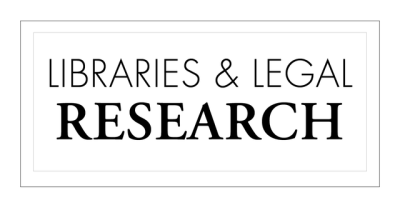
Plant-based food products that provide alternatives to those traditionally made from animals are a fast-growing part of our food industry. Consider the humble burger: A recent forecast expects a
$241-million North American plant-based burger market by 2030 with the United States and Canada as market leaders. A compound annual growth rate of more than 22% is predicted for 2020-2030.1
U.S. consumers’ preference for beef products over plant-based products remains strong, according to a 2021 study commissioned by the Cattlemen’s Beef Promotion and Research Board.2 However, the study suggests that competitive pricing of plant-based alternatives coupled with greater health and environmental appeal to younger individuals may offer healthy competition in the marketplace.3
FEDERAL AND STATE LABELING LAWS
The U.S. Department of Agriculture (USDA) regulates the production and labeling of meat and poultry products under the Meat Inspection Act.4 The U.S. Food and Drug Administration (FDA), part of the U.S. Department of Health and Human Services (HHS), does the same for plant-based food products under the Federal Food, Drug, and Cosmetic Act.5 Both authorities must ensure that labeling for products under their control is truthful and not misleading to consumers. To help with this task, they prescribe regulatory definitions and standards of identity (SOI) which specify mandatory and optional ingredients for food products. SOI also may include a method of production. The goal is to “promote honesty and fair dealing in the interest of consumers.”6 To illustrate, the USDA’s current SOI for hamburger is as follows:
“Hamburger” shall consist of chopped fresh and/or frozen beef with or without the addition of beef fat as such and/or seasoning, shall not contain more than 30 percent fat, and shall not contain added water, phosphates, binders, or extenders. Beef cheek meat (trimmed beef cheeks) may be used in the preparation of hamburger only in accordance with the conditions prescribed in paragraph (a) of this section.7
The FDA has been seeking to modernize and update existing SOI horizontally (i.e., across categories of standardized foods.) In 2019, the agency created a public forum for gathering and sharing information that would lead to “flexibility for the development of healthier foods … and facilitate innovation.”8 It may take some time to evaluate the more than 5,200 comments received in response to the agency’s notice.9 More recently, the FDA reopened the comment period for a rule proposed in 2005 that would establish general principles that the FDA and USDA would use in establishing new food standards or reevaluating existing ones.10 Meanwhile, at least a dozen major beef-producing states have proposed or enacted legislation restricting how plant-based or cell-cultured meat alternatives may be labeled.11 Among them are Alabama, Arkansas, Kentucky, Louisiana, Mississippi, Missouri, Montana, North Dakota, Oklahoma, South Carolina, South Dakota, and Wyoming.12 This course of legislation generally would prohibit the use of words like “burger” or “milk” to describe products not derived from harvested production livestock or poultry even if the labels also clearly label the product as “vegan,” “vegetarian,” “plantbased,”or “meat substitute.”
CHALLENGES IN THE COURTS
Plant-based food advocates are not acquiescing to heightened labeling restrictions imposed by the states. The Plant Based Foods Association (PBFA), a trade association with more than 200 corporate members, responded by issuing recommended labeling standards for plant-based milk (2018) and plant-based meat (2019).13 The PBFA and other industry advocates have also lent support to legal challenges inspired by new state labeling restrictions affecting plant-based products. Federal lawsuits have been filed (and some have been resolved) in multiple states.14 Plaintiff claims share a common theme — that new restrictive labeling laws compromise their First Amendment right to free speech and favor the meat industry. Defendants argue that the laws are intended to protect consumers from being misled by inaccurate labeling. So far, a mix of plaintiffs and defendants have prevailed in court.
THE MICHIGAN LANDSCAPE
The Food and Dairy Division of the Michigan Department of Agriculture and Rural Development has issued clear food-labeling requirements for products manufactured or sold in the state.15 The food labeling guide outlines SOI considerations for “imitation” foods, generally. As it stands, the guide does not directly address labeling for plant-based products or meat or dairy alternatives. However, pending 2021 HB 4982 would add specificity to Michigan’s food laws by “impos[ing] new labeling requirements with respect to laboratory-grown meat.”16 In part, the bill states, “A person shall not label or identify as meat a laboratory-grown meat substitute.” The current bill is substantially similar to 2019 HB 4947, which was introduced but never advanced to the House floor. As of this writing, 2021 HB 4982 resides with the House Committee on Agriculture, which is where its predecessor died.
The views expressed in “Libraries & Legal Research,” as well as other expressions of opinions published in the Bar Journal from time to time, do not necessarily state or reflect the official position of the State Bar of Michigan, nor does their publication constitute an endorsement of the views expressed. They are the opinions of the authors and are intended not to end discussion, but to stimulate thought about significant issues affecting the legal profession, the making of laws, and the adjudication of disputes.